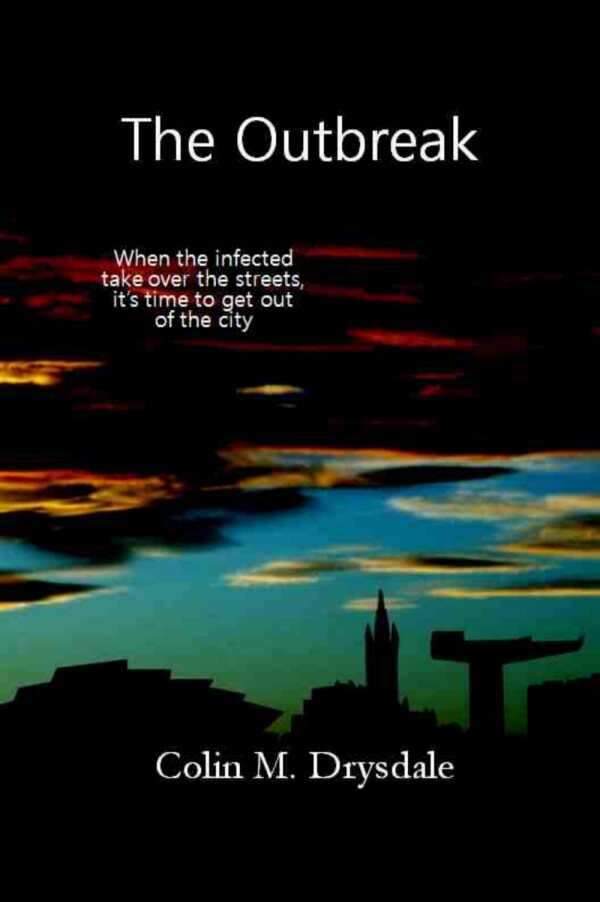The Outbreak
- 2014 INDIES Finalist
- Finalist, Horror (Adult Fiction)
Now, here’s a zombie apocalypse that really knocks ’em dead.
With zombie apocalypses occurring across all media at an alarming rate these days, it is difficult to find a new spin on the catastrophe. But Scottish marine biologist Colin M. Drysdale’s second book about the walking dead, The Outbreak, adds a refreshing new twist to the genre: a small group of Glaswegian survivors finds safety at sea. Tackling themes such as uncertainty, not judging people by appearances, and the importance of living for the moment, Drysdale’s seafaring tale makes a splash in the postapocalyptic genre.
The author’s first coups occur in the prologue, prior to meeting the protagonists, as the prime minister and top general discuss contingency plans for an outbreak of a zombie-causing virus in their vicinity. Firstly, readers learn that a vaccine for the initial zombie virus has caused the disease to mutate into its current form. The notion that an inoculation created to protect people against illness is now causing doom is a scary paradox indeed. Secondly, as the two men argue, Drysdale humanizes them. Many believe that politicians and the military have little regard for civilians, but these two men agonize over the decision to close the country’s borders and vow to kill people only as a last resort, feeling sick about the possibility of having to do so. It is gratifying to read about the general experiencing “nervousness.”
As the story starts, whale-watching yacht captain Ben sails up to Glasgow to meet an old friend, a street performer named Tom. When the virus hits Glasgow, they flee to Ben’s boat, acquiring assorted survivors along the way. These include a waitress named Iliana, impoverished gamer Daz, and doctor Claire and her kids, Sophie and Jake. Almost no surnames are used in the book, which ingeniously reinforces the twin ideas that crises can make people anonymous and that, in peril, survival matters more than rank or station. What they lack in surnames they make up for in dynamic characterizations. Initially terrified teens, Sophie and Daz mature quickly, while adults Ben, Claire, and Tom realize they may not know as much as they thought they did. Scarier still, knowledge that helped them survive before the apocalypse may no longer apply. Ben mentions that all of them represent different social classes but are drawn together by the need to survive.
The thriller moves at a fast pace, with each chapter ending in a cliff-hanger designed to ratchet up suspense while keeping the audience turning the pages. Another brilliant coup occurs as it becomes impossible to predict who will die and how death will occur. As with the Game of Thrones series, The Outbreak also possesses no qualms about killing off characters one has become invested in. The alacrity with which some die only reinforces the horror of it all. Finally, while “zombie” may be the term of the moment, this book refers to the antagonists as “the infected.” There are plenty of fish in the sea of zombie books, but few like Colin M. Drysdale’s infectious tales.
Reviewed by
Jill Allen
Disclosure: This article is not an endorsement, but a review. The publisher of this book provided free copies of the book and paid a small fee to have their book reviewed by a professional reviewer. Foreword Reviews and Clarion Reviews make no guarantee that the publisher will receive a positive review. Foreword Magazine, Inc. is disclosing this in accordance with the Federal Trade Commission’s 16 CFR, Part 255.

